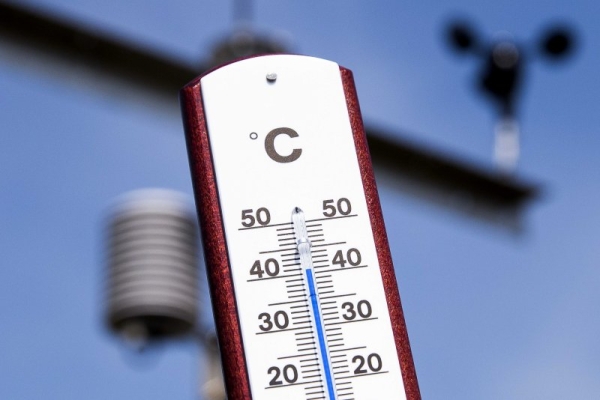

Man-made warming of the Earth saw the number of heat-related deaths in Europe’s latest heat wave in late June and early July jump three-fold to at least 2,300, a new study out Wednesday shows. File photo by Vincent Jannink/EPA-EFE
Heat-related deaths in Europe’s latest heat wave that ended last week were three times higher than they would have been without the warming of the planet caused by man-made climate change, British scientists said Wednesday.
Climate-warming caused by burning fossil fuels, including oil, gas and coal, made the heatwave much hotter, boosting heat deaths from about 800 to an estimated 2,300 across 12 European cities, according to a new research study published by Imperial College London’s Grantham Institute.
“Rapid analysis” of the period June 23 through July 2 using existing peer-reviewed methods found climate change nearly tripled the number of heat-related deaths, with fossil fuel burning driving additional temperature rise of up to 4 degrees Celsius.
During 10 days of heat peaking on July 1, Milan saw the most excess deaths due to climate change at 317, followed by Barcelona with 286, Paris, 235, London, 171, and Rome, 164.
Sassari on the island of Sardinia, had just six excess deaths due to climate change-induced heat, notwithstanding that it has a population around 1/70th the size of London.
The elderly were disproportionately affected, with people older than 65 accounting for 88% of the deaths due to climate change, which the study said underscored the scale of the risk of premature death in heatwaves for people with underlying health conditions and for Europe with its aging population.
However, the scientists at Imperial and the London School of Hygiene & Tropical Medicine warned that the figures meant the likely death toll far exceeded other recent weather disasters, including floods in Valencia in summer 2024 and floods in northwestern Europe in 2021.
“This study demonstrates why heat waves are known as silent killers,” said Malcolm Mistry, co-author of the study and an epidemiologist at the London School of Hygiene & Tropical Medicine, told The Guardian.
Imperial College climate scientist Ben Clarke said the dangers of heat waves were not widely recognized, as the deaths they caused did not grab the headlines like other disasters.
“Heat waves don’t leave a trail of destruction like wildfires or storms. Their impacts are mostly invisible but quietly devastating. A change of just 2 or 3 degrees Celsius can mean the difference between life and death for thousands of people.”
Imperial College climate specialist Garyfallos Konstantinoudis said the actual number of climate change heat-related deaths for all of Europe may well be in the tens of thousands as the study was only a snapshot, not the full picture.
The study warns that heat waves would continue to get hotter and predicts the number of people dying would continue to rise unless the world stops burning fossil fuels and achieves net-zero greenhouse gas emissions.
Separate data from the Spanish government pinpointed at least 450 extreme heat-related deaths between June 21 and July 2, up more than 70% from 2022, when 40 degrees Celsius plus temperatures killed record numbers of people.
The European Union’s Climate Change Service said the global temperature in June was the highest ever recorded.
It said an “exceptional” marine heatwave in the western Mediterranean pushed the daily sea surface temperature to a record 27 degrees Celsius.
Heat-related deaths are forecast to be 10 times higher when global temperature rises hits 1.5 degrees Celsius and 30 times higher at 3 degrees Celsius, the European Environment Agency warned last month.